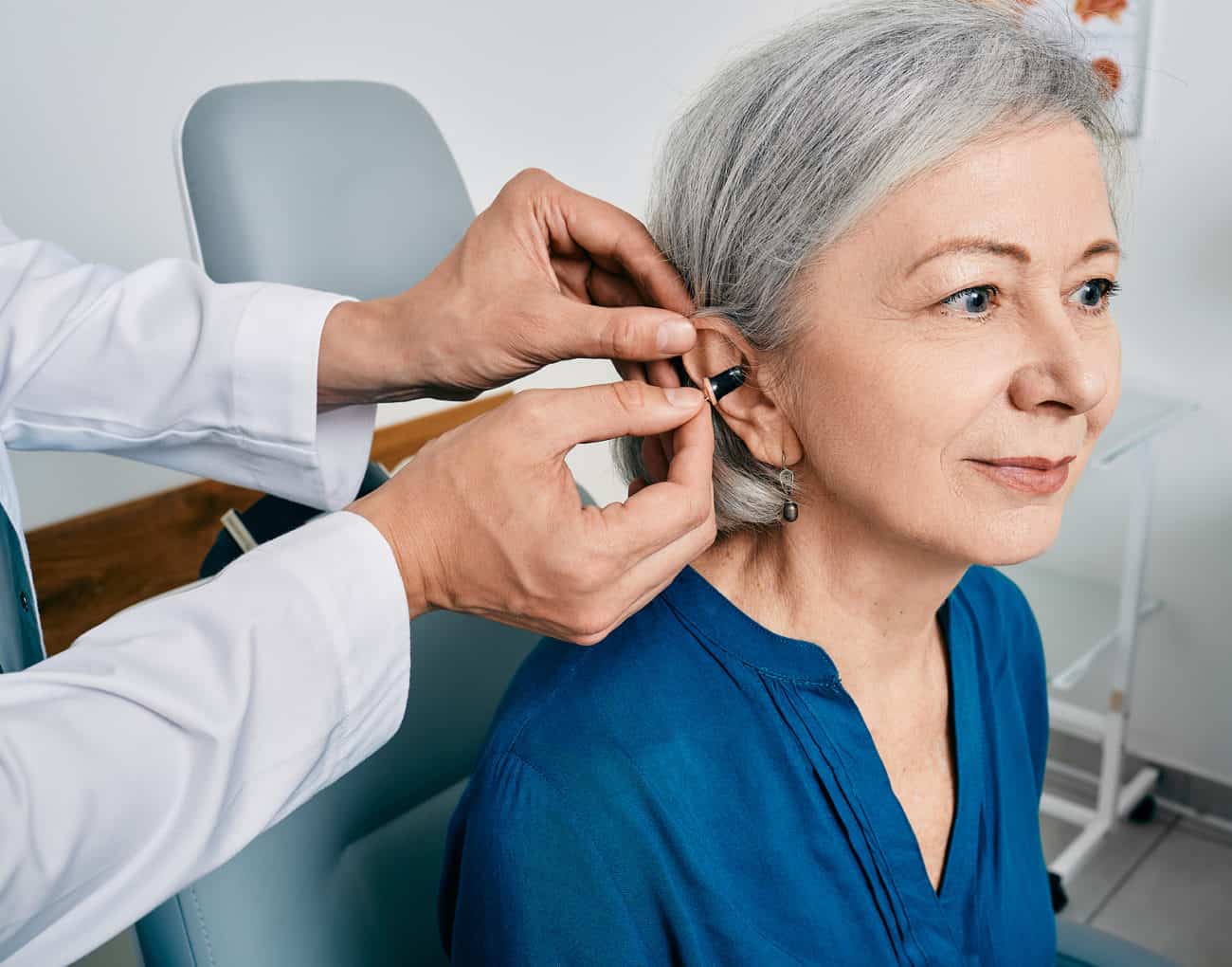- Everyday Sounds That May Be Making Your Tinnitus Worse - May 7, 2025
- The Hidden Dangers of Everyday Noise and How to Stay Safe - April 9, 2025
- World Hearing Day Serves as a Reminder to Prioritize Hearing Aid Maintenance - March 3, 2025
Falls are the leading cause of death among elderly people in the United States. What’s more, even if a fall is less severe, falling even once almost doubles your risk of falling again. Recently, more fall prevention classes are being recommended to older folks, and yet, something as simple as treating hearing loss may aid in lowering the risk of falls.
The link between falls and hearing loss
Our balance and our sense of hearing are highly intertwined. It may surprise you to hear that our system of balance shares a common neural pathway to the brian. They are connected in the inner ear, whose fluid fills the balance canals. When we move, the fluid does too, swirling back and forth which initiates a nerve signal and pilots our balance system.
We know how they are connected and recent research is illuminating the ways hearing loss can impact balance. Through study, scientists have determined that with each 10 decibel decline in hearing, our risk of falls increases by about 140 percent. That means that for an average person, moving from normal hearing to mild hearing loss (which is a loss of approximately 25 decibels), their risk of falling has tripled.
Location, location, location
But there are other links between the falling and hearing loss, as well. Because the truth is that the biomechanics of hearing loss are just one part of the picture. Hearing loss causes us to have less environmental awareness. This has something to do with our binaural hearing, which is a subconscious process that we use all the time. By measuring the difference in volume of a sound from one ear to the other, we can locate where that sound is coming from. It’s how we know where to turn our heads when someone calls our name, or we hear a loud car horn warning us to get out of the way or how we know Fido is trotting up quickly behind us. And then we move accordingly. But if we aren’t getting those context clues, we open ourselves up to being surprised and losing our footing.
Binaural hearing can also help us locate where we are in space. We know that people with hearing loss have a lesser degree of spatial awareness, which is how we locate ourselves in relation to objects. Perhaps we misjudge the length of a step, the angle of our bodies or the height of a tub.
Feelings of fatigue may add to risk
Fatigue is another commonly reported symptom of hearing loss, because a person with less than optimal hearing has a brain that is working harder. It’s like trying to do a puzzle when you are missing some of the pieces. And you’re not quite sure exactly what it will look like. Your brain works overtime to solve this riddle and you are left feeling mentally drained. In a depleted state, we are more likely to fall or misstep.
A decline in mobility
Just like hearing loss, anxiety about having another fall can make people less mobile. Feeling isolated from others and fear of repeating a tumble, people can retreat inward. Unfortunately, that sets us up for even less mobility. As we scale back our movement, we tend to have less access to movement in the future. Our confidence falters and our balance gets shakier and shakier.
Treating hearing loss to prevent falls
There are all sorts of preparations you might take in order to defend yourself against a severe fall. Installing handrails in bathrooms and hallways are prudent prevention steps. You can also engage in movement practices that assist with building stronger balance, like Yoga and Tai Chi. More and more, we see fall prevention classes and ‘how to fall’ classes available for older folks.
But choosing to treat hearing loss with hearing aids is also a sensible course of action to up your dosage of protection. A study from the University of Michigan showed that people implementing hearing aids for the first time cut their risk of fall-related injuries by about thirteen percent.
Schedule a hearing consultation
Don’t wait to treat your hearing loss. Schedule a consultation today with our highly trained team of hearing professionals. We’ll guide you through a simple hearing exam and use your results to determine if you are a good candidate for hearing aids as we chart the best course forward for a healthy hearing future.

